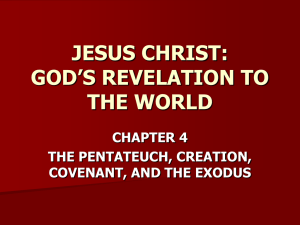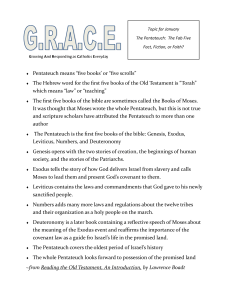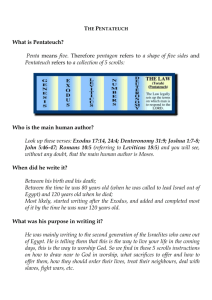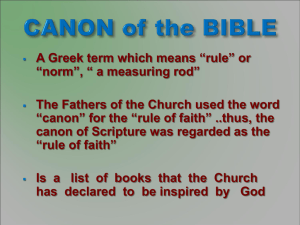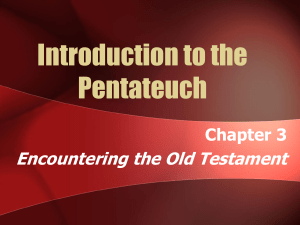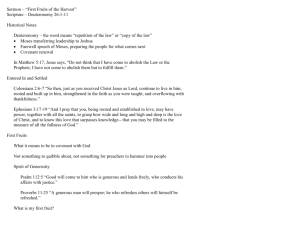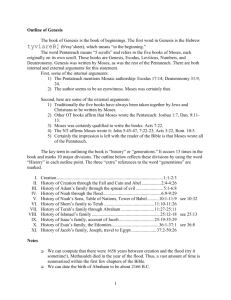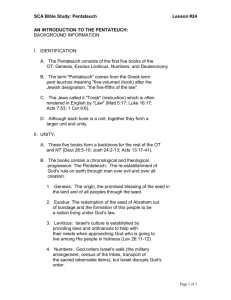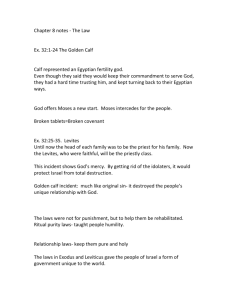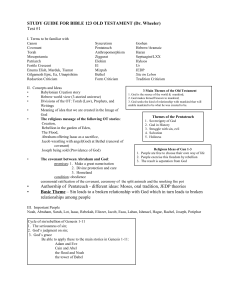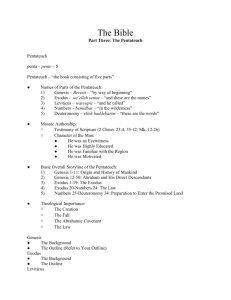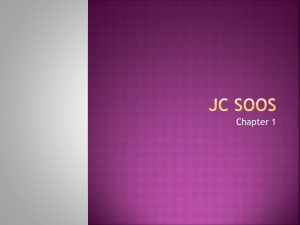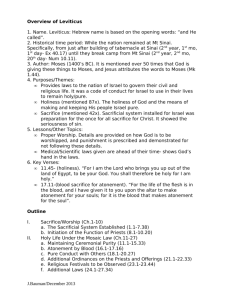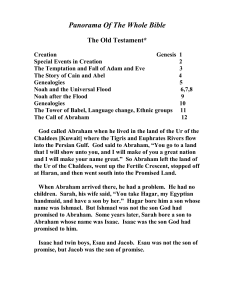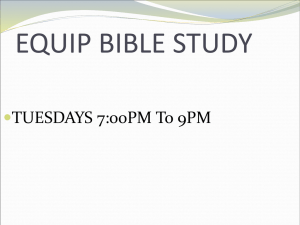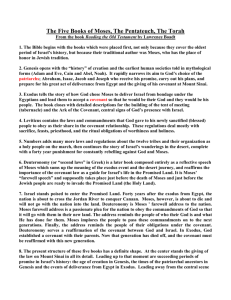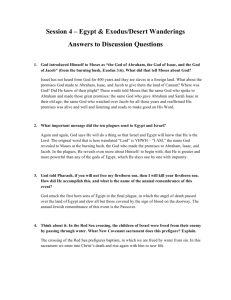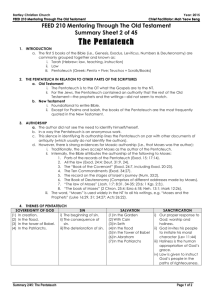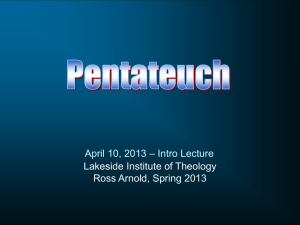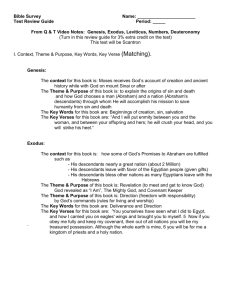The Pentateuch
advertisement
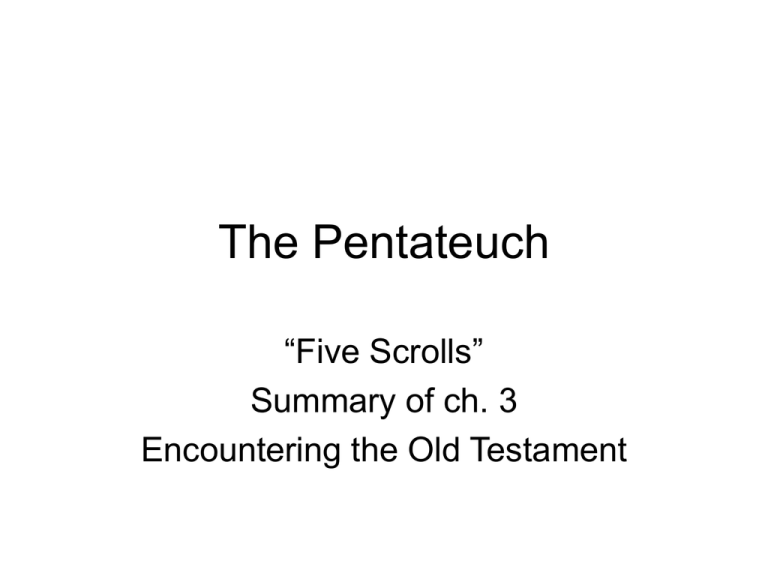
The Pentateuch “Five Scrolls” Summary of ch. 3 Encountering the Old Testament The Pentateuch • First 5 books of OT • Genesis, Exodus, Leviticus, Numbers, Deuteronomy • Also called – Torah – law, instruction – Book of the Law – Books of Moses • The story of how Israel’s ancestors became the people chosen by God – Chosen to represent God to the world – Chosen to be a blessing to the world • Genesis 1-11 – Story of beginnings • Creation – life • Struggles of life – Good vs Evil – Effects of sin, evil – Estrangement between people, people & God • Gen 12-50 – Story of Abraham and his family and their journey of faith – Covenant between Abraham and God • Exodus – Story of Moses and his leadership of Israel out of Egypt – Covenant between Israel and God • Leviticus – Guidance from sons of Levi - priests – Instructions for moral and ritual purity – God’s people should be holy because he is holy • Numbers – Story of Israel’s travels after leaving Egypt – Struggles of faithfulness to the covenant • Deuteronomy – “second law” – Moses prepares Israel for the promised land Themes of the Pentateuch • Sovereignty of god – Creator, protection of Abraham, defeats Egyptian gods • God in History – God is involved in history, not simply above or beyond it • Struggle with evil, sin • Salvation – Deliverance from control of evil • Holiness – Character of God – Expects his people to share holiness – People become like what they revere, worship Who wrote the Pentateuch? • Traditional theory – Moses wrote it • Modern theory – Several wrote various parts over a long period of time – Different themes, different name of God, different perspectives reflect different authors • Main documents –JEDP – J – “Jehovah” – Yahweh – E – “Elohim” – D – mainly Deuteronomy – P – mainly priestly material – Eventually all these documents were put together to form the Pentateuch • Many debates over these ideas • Much of the material was transmitted orally for generations • Much of the material was shaped at the time of Moses • Several later shaped the traditions handed down from Moses • Redaction criticism – Tries to detect how different sources are edited together • Form criticism – Analyzes different literary types, styles (genre) - (narrative, poetry, wisdom, etc) • Sitz im leben – “situation in life” – The settings in which the different literary types were used • Tradition criticism – Tries to trace the oral traditions
